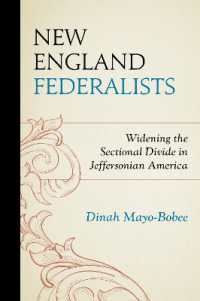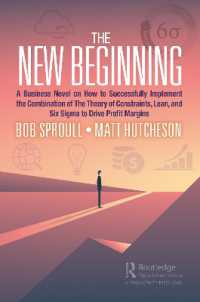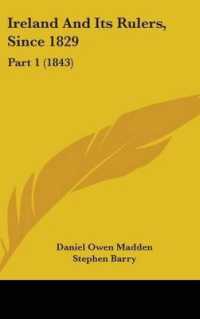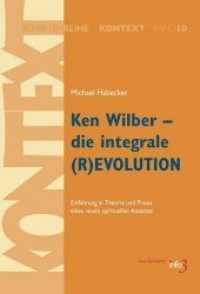- ホーム
- > 洋書
- > 英文書
- > Philosophy
Full Description
For Plato, tragedy and comedy are meaningful generic forms with proto-philosophical content concerning the moral character of their protagonists. He operates with a distinction between actual drama, the comedy and tragedy of the fourth and fifth centuries BCE, and ideal drama, the norm for what comedy and tragedy ought to be like. In this book Franco Trivigno reconstructs, on Plato's behalf, an original philosophical account of tragedy and comedy and illustrates the interpretive value of reading Plato's dialogues from this perspective. He offers detailed analyses of individual dialogues as instances of ideal comedy and tragedy, with attention to their structure and philosophical content; he also reconstructs Plato's ideals of comedy and tragedy by formulating definitions of each genre, specifying their norms, and showing how the two genres are related to each other. His book will be valuable for a range of readers interested in Plato and in Greek drama.
Contents
Introduction; 1. Plato's definition of comedy; 2. Comedic characterization in Plato's Euthydemus; 3. Parody in Plato's Cratylus; 4. Plato's definition of tragedy; 5. Tragedy and the best life in Plato's Gorgias; 6. Tragedy and death in Plato's Phaedo; 7. The unity of comedy and tragedy in the symposium.








